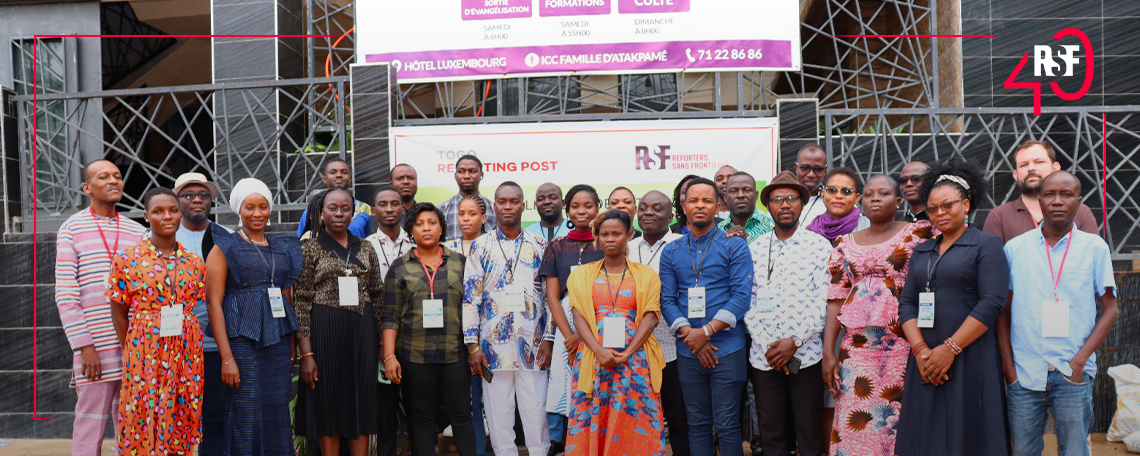
Armenian Journalists’ Team Heads to Lithuania for European Championship
September 9, 2025
Five New York Times Journalists Honored by National Association of Black Journalists
September 10, 2025From July 23 to 25, 2025, Reporters Without Borders (RSF) funded an innovative environmental investigative journalism training organized by the Truth Reporting Post consortium in Atakpamé, Togo. The three-day program drew around 25 journalists from across West Africa—including Togo, Guinea, Ghana, and Benin—equipping them with open-source intelligence (OSINT) techniques tailored specifically to environmental reporting, now often referred to as ECOSINT.
Participants learned how to harness public data, satellite imagery, and other open-source tools to investigate critical environmental issues. One attendee noted the training’s immediate relevance: they planned to apply their new skills to probe the future viability of the Niger River. Another highlighted how ECOSINT methods enhanced the preparation of stories, citing an investigation into illegal gold panning in eastern Togo as an example of reporting that benefited from the training.
The consortium’s leadership underscored the importance of this shift in journalistic practice. Larissa Agbenou, chair of the organizing committee, lamented that environmental matters are often neglected or misunderstood in media discourse. Pierre-Claver Kuvo, coordinator of Truth Reporting Post, echoed this urgency—emphasizing that OSINT tools are vital for uncovering truths beyond mainstream narratives.
RSF’s Sub-Saharan Africa director, Sadibou Marong, framed the training as a direct response to the mounting environmental and climate challenges confronting the region. He acknowledged the myriad obstacles environmental journalists face, from press freedom violations to physical threats, reinforcing the need for robust investigative capacity.
Indeed, environmental reporters in West Africa operate in increasingly fraught contexts. In February 2025, for instance, three journalists were attacked while trying to film illegal mining activities in southwestern Ghana—a stark reminder of the dangers on the ground.
RSF’s investment not only provided practical training but also signaled solidarity and support for journalists determined to spotlight pressing ecological issues. By elevating investigative standards and promoting specialized skills like ECOSINT, the initiative lays a critical foundation for more informed, impactful environmental journalism—empowering reporters to hold power to account and raise public awareness on the most urgent threats facing their communities.
Reference –

